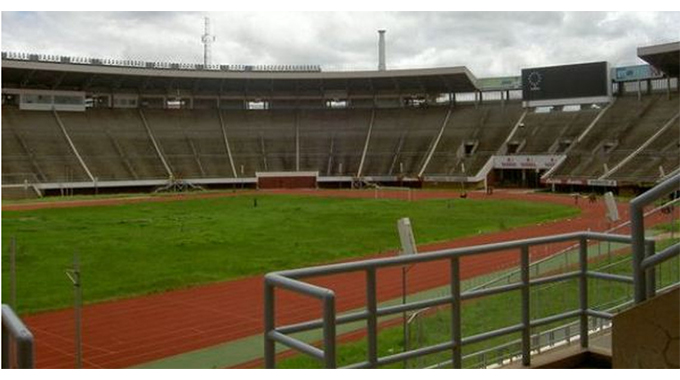‘Upper-middle income economy plans hindered’

Mashudu Netsianda, Senior Reporter
PRESIDENT Mnangagwa has said his administration will be able to push to fulfil its long-term plan of transforming Zimbabwe into an upper-middle income economy in line with Vision 2030 if the illegal economic sanctions imposed by the United States and other Western countries are lifted.
The sanctions were imposed on Zimbabwe soon after the country’s fast-track land reform programme in 2 000. Sadc has been calling for the removal of sanctions and has designated October 25 as the day of solidarity with Zimbabweans against the embargo.
In an opinion article published yesterday by one of the world’s leading media corporations, Al Jazeera Media Network, President Mnangagwa said the removal of sanctions will stimulate innovation and alleviate poverty affecting thousands of citizens.
“If the sanctions are removed, we would have a fighting chance at fulfilling our plans to become a middle-income country by the end of this decade, helping thousands out of poverty, stimulating innovation and once again allowing Zimbabwe to play a leading role on the African continent,” he wrote.
The President, who recently attended the 26th United Nations Climate Change Conference (COP26) in Glasgow, Scotland in the United Kingdom, said he believes his Government under the Second Republic has demonstrated its willingness and desire to play a responsible role in the international community.
“We have made great progress over the last three years and addressed many of the reforms asked of us, including providing compensation to landowners who had their properties expropriated in the 2000s, and tackling corruption.
We are applying to re-join the Commonwealth of nations and I hope my presence at COP26 is yet another sign of Zimbabwe’s re-engagement efforts,” he said.
Last month, UN Special Rapporteur Professor Alena Douhan called for the removal of sanctions on Zimbabwe by the EU and the US at the end of her fact-finding mission.
Prof Douhan, who was sent to Zimbabwe to assess the impact of the sanctions, said the sanctions were illegal and have crippled the economy.
President Mnangagwa said Prof Douhan echoed the arguments he articulated when he took office, that sanctions and various over-compliance with sanctions have had “an insidious ripple effect on the country’s economy and on the enjoyment of fundamental human rights, including access to health, food, safe drinking water and sanitation.”
Local church leaders recently engaged the head of the Anglican Church, the Archbishop of Canterbury, the Most Reverend Justin Welby, in England to whom they handed over a letter seeking support for the push for the removal of illegal economic sanctions imposed on Zimbabwe.
The seven local clerics and one lady under the banner of the Zimbabwe Churches’ Sanctions Relief Initiative (ZICSRI), also requested Archbishop Welby to deliver another letter of request for the removal of sanctions to United Kingdom Prime Minister Boris Johnson.
The clerics were part of the official Zimbabwe delegation to the United Nations Climate Change Conference in Scotland.
As part of his re-engagement during COP26, President Mnangagwa also met Secretary of State for the Vatican City, Cardinal Pietro Parolin, who said the church was against sanctions.
The President requested that Cardinal Parolin relays his request to Pope Francis that he should loudly condemn the sanctions imposed on Zimbabwe.
President Mnangagwa also engaged a number of global leaders during COP26 among them US President Joe Biden, British Prime Minister Boris Johnson, Canadian Prime Minister Justin Trudeau and President of the European Council Mr Charles Michel.
“I was buoyed by warm bilateral conversations with US President Joe Biden, British Prime Minister Boris Johnson, Canadian Prime Minister Justin Trudeau, President of the European Council Charles Michel and others over the first week of the conference. But the time for words is over — we must act now,” he wrote.
President Mnangagwa said he was optimistic that the developing world will be freed to both play its part in the global fight against climate change as well as be equipped to deal with its devastating consequences.
Turning to what the Second Republic is doing in terms of tackling climate change challenges, President Mnangagwa said his Government is committed to reducing emissions by 40 percent before 2030.
“This builds on a previous commitment for a 33 percent emissions reduction set in 2017. The new target will see greenhouse gas emissions curbed to 44,7 million tonnes of carbon dioxide equivalent (Mt CO2e) by 2030, a reduction of about 30 million tonnes,” he said.
“One of our routes to achieve that is through significant expansion of renewable energy with the aim of having 26,5 percent of all energy from renewable sources by 2030. This includes investment in hydro energy, solar energy and biomass.”
President Mnangagwa said Government has also reaffirmed its commitment to conserve the diverse wildlife that the country is endowed with.
“We have 11 protected national parks, each one provides a safe environment for our wildlife, including African buffalo, African bush elephant, the critically endangered black rhinoceros, southern giraffe, African leopard, lion, plains zebra and several antelope species,” he said.
“Last year, mining was banned in all those national parks. Moreover, my Government entered a partnership with conservation non-profit African Parks, signing a 20-year agreement in November 2020 for the management of Matusadona National Park.”
President Mnangagwa said Zimbabwe still needs to cope with the shocks of drought and the impact of climate change through necessary social safety nets.
“That is why I have been appealing for multilateral support to supplement our efforts. Developed nations need to widen access to climate finance as soon as possible. Sadly, the long-standing pledge to contribute $100 billion annually to help developing countries deal with the effects of climate change has been elusive,” he said.
“The wealthiest countries must set an example and speed up this financing. All it demands is political will. Another step the leading economies should take to support us, and others, is to end the political and illegal use of sanctions.”
The sanctions, combined with the effects of climate change, have made life difficult for Zimbabweans. – @mashnets.








Comments